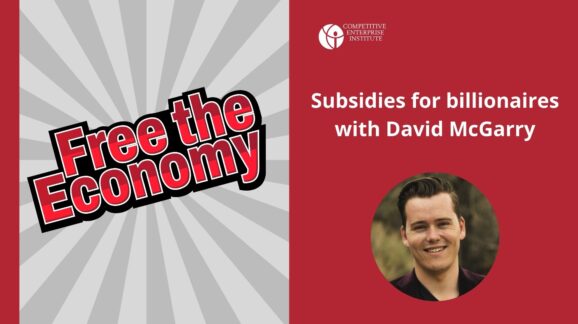There are two main areas in which Congress can enact meaningful reform. The first is to rein in regulatory guidance documents, which we refer to as “regulatory dark matter,” whereby agencies regulate through Federal Register notices, guidance documents, and other means outside standard rulemaking procedure. The second is to enact a series of reforms to increase agency transparency and accountability of all regulation and guidance. These include annual regulatory report cards for rulemaking agencies and regulatory cost estimates from the Office of Management and Budget for more than just a small subset of rules.
In 2019, President Trump signed two executive orders aimed at stopping the practice of agencies using guidance documents to effectively implement policy without going through the legally required notice and comment process.
Featured Posts

Blog
The week in regulations: Bird hunting and food coloring
The Federal Register’s website became less transparent about rule counts and other data. President Trump threatened to send the military into a third city. The…

Blog
Free the Economy podcast: Subsidies for billionaires with David McGarry
In this week’s episode we cover White House intervention in corporate ownership, the nation’s falling economic freedom ranking, and welcome new…

News Release
Federal appeals court rules on NLRB unconstitutionality
The 5th Circuit Court of Appeals today issued a ruling suggesting the structure of the federal government’s top labor dispute regulator, the National Labor Relations…
Search Posts
Blog
MoveOn admits: “[I]f younger, healthier people don’t participate, then costs will skyrocket and Obamacare will fail.”
MoveOn.org yesterday sent me an appeal asking for $5 to help fund a $250,000 social media campaign supporting ObamaCare targeted to reach young adults. Here’s…
Blog
Before Net Neutrality Eats the World (Part 10): Who’s Discriminating Online?
(Note: On September 9, the U.S. Court of Appeals for the D.C. Circuit will hear oral arguments in Verizon’s challenge of…
Blog
CEI Podcast for August 29, 2013: Consequences of Net Neutrality
Have a listen here. In 2010, the FCC issued regulations to implement net neutrality. The resulting legal challenge is about to hit the D.C.
Blog
Before Net Neutrality Eats the World (Part 9): How to Expand Consumer Choice and Access to Content
(Note: On September 9, the U.S. Court of Appeals for the D.C. Circuit will hear oral arguments in Verizon’s challenge of…
Blog
Before Net Neutrality Eats the World (Part 8): The Essential Elements of Non-Destructive Rulemaking
(Note: On September 9, the U.S. Court of Appeals for the D.C. Circuit will hear oral arguments in Verizon’s challenge of…
Blog
Historians Should Learn the Economic Way of Thinking
Simon Schama is one of the world’s great historians. Indeed, I am currently having my children watch his magisterial “History of Britain,” and they are…
Staff & Scholars

Clyde Wayne Crews
Fred L. Smith Fellow in Regulatory Studies
- Business and Government
- Consumer Freedom
- Deregulation

Ryan Young
Senior Economist
- Antitrust
- Business and Government
- Regulatory Reform

Fred L. Smith, Jr.
Founder; Chairman Emeritus
- Automobiles and Roads
- Aviation
- Business and Government

Sam Kazman
Counsel Emeritus
- Antitrust
- Automobiles and Roads
- Banking and Finance

Marlo Lewis, Jr.
Senior Fellow
- Climate
- Energy
- Energy and Environment